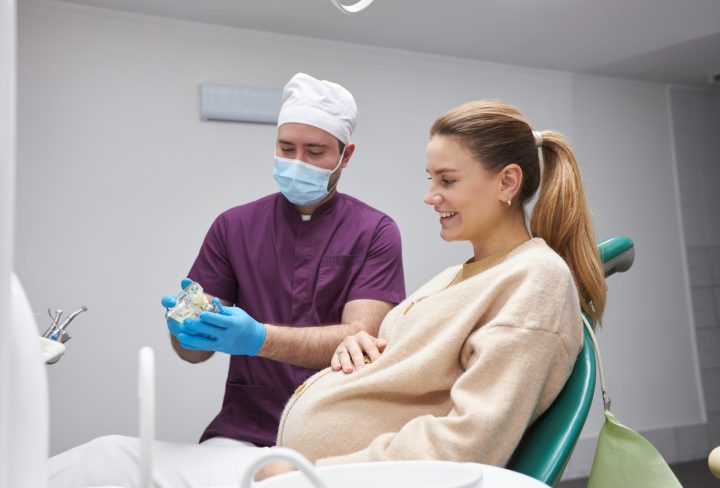Introduction: The Link Between Pregnancy and Oral Health
Pregnancy and oral health are closely connected. During pregnancy, your body goes through many changes. These changes can affect your teeth and gums. For example, hormonal shifts may increase your risk of gum disease in pregnancy. Because of this, it is important to care for your mouth. Good oral health helps keep you and your baby healthy. In many cities, pregnancy dental care is now a key part of prenatal visits.
Symptoms: Common Oral Health Changes During Pregnancy
Many women notice changes in their mouths while pregnant. Some symptoms are mild, but others may need a dentist’s care. For instance, you may see or feel:
However, not everyone will have all these symptoms. If you notice any changes, talk to your dentist.
Causes: Why Pregnancy Affects Oral Health
Pregnancy brings many changes to your body. As a result, your mouth can be affected in several ways:
Because of these causes, it is important to pay extra attention to your oral health during pregnancy.
Diagnosis: How Dentists Assess Oral Health in Pregnant Women
Regular dental checkups are safe and important during pregnancy. Dentists use gentle exams to check your teeth and gums. Often, they will:
Because early diagnosis helps prevent bigger problems, do not skip your dental visits. The CDC and WHO both recommend routine dental care for pregnant women.
Treatment: Safe Dental Care Options During Pregnancy
Many dental treatments are safe for pregnant women. For example, dentists can:
However, some procedures may be delayed until after birth unless urgent. Always tell your dentist that you are pregnant. This helps them choose the safest care for you and your baby.
Lifestyle Guidance: Oral Hygiene Tips for Expecting Mothers
Good daily habits can protect your mouth during pregnancy. Here are some oral hygiene tips for expecting mothers:
Because small changes add up, these steps can help keep your mouth healthy throughout pregnancy.
Prevention: Steps to Prevent Oral Health Problems During Pregnancy
Preventing oral health problems is easier than treating them. For best results, follow these steps:
Because prevention is key, these habits can lower your risk of gum disease in pregnancy and other issues.
Conclusion: Take Care of Your Smile During Pregnancy
Pregnancy and oral health are closely linked. By caring for your mouth, you protect both yourself and your baby. If you have questions or notice changes, consult your dentist or healthcare provider for personalized advice during pregnancy.
